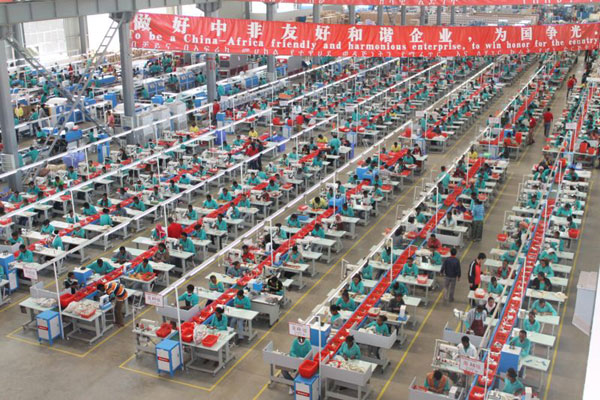
By virtue of its location, dynamism and export incentives, Ethiopia has a high potential in trade.
Ethiopia is the second most populous country in Africa and thus potentially one of the largest domestic markets on the continent. By virtue of its membership to the Common Market for Eastern and Southern Africa (COMESA) embracing 19 countries with a population of about 400 million, Ethiopia enjoys competitive market access to these countries. The country moreover qualifies for preferential access to European Union market under the EU’s Everything-But-Arms (EBA) initiative and to USA markets under the African Growth and Opportunities Act (AGOA). Furthermore, a broad range of manufactured goods from Ethiopia are entitled to preferential access under the Generalized System of Preference (GSP) in the USA, most countries of the EU and other developed countries. No quota restrictions are placed on Ethiopian exports falling under the 4,800 products currently eligible for GSP treatment. Ethiopia’s proximity to the Middle East and Asian markets also offers further potential market opportunities.
Exports from Ethiopia are very dynamic, and their main destinations include China, Germany, Switzerland, Saudi Arabia. While the share of manufacturing products is increasing, exports in the agricultural sector are also on the rise: between 2012-2013 and 2013-2014, exports revenues from agricultural products are expected to grow by 16.3 percent, with a total revenue of more than 2.5 billion of dollars, according to the Ministry of Trade. The top export items include coffee, oil seeds, cereals, spices, natural gum and incense. Other common agricultural exportable items are fruits, vegetables and flowers, livestock and meat, pulses and oilseeds, spices and cotton. Agro-processed products include beeswax, honey and civet, fish, hides and skins. The manufactured products include leather products, textiles, wool, building materials, beverages, marble, granite and traditional handcrafts.
Ethiopia has followed an export led free market economy in which the government plays a facilitation role in the sector by providing several incentives and building huge infrastructures to boost the sector. In order to enhance the export sector, the Government has established the Ethiopia Commodity Exchange (ECX), a marketplace where buyers and sellers come together to trade, assured of quality, delivery and payment. ECX assures all commodity market players the security they need in the market by providing a secure and reliable end-to-end system for handling, grading, and storing commodities, matching offers and bids for commodity transactions, and a risk- free payment and goods delivery system to settle transactions, while serving all fairly and efficiently.
In order to further encourage investors and businesses to engage in exporting Ethiopian products, trade incentives provide advantages to exporters. Several of them are included in the Proclamation No. 543/2007, cited as “The Revised Export Trade Duty Incentive Scheme Establishing Proclamation”. Most notably, the Proclamation provide :
– a Duty Draw-Back Scheme: duty paid at the airport of entry and locally, on raw materials used in the production of commodities, is refunded 100 percent upon the exportation of the processed commodity;
– a Voucher Scheme: a printed document having monetary value, which is used in lieu of duties and taxes payable on important raw materials.
The beneficiaries of the voucher scheme are also exporters; and
– a Bonded Manufacturing Warehouse Scheme: Producers wholly engaged in exporting their products who are not eligible to use the Voucher Scheme can obtain a license that enables them to operate such factory or warehouse.
Moreover, with the exception of semi-processed hides and skins, no export tax is levied on export products of the country, and any investor who exports or supplies to an exporter (production or service input of at least 60 percent of the products or services) shall be entitled to income tax exemption for 2 years in addition to the income tax exemption.
Non-fiscal incentives for exporters include:
– Possibility to retain and deposit in a bank up to 20 percent of their foreign exchange earnings for future use in the operation of their enterprises with no export price control imposed by the National Bank of Ethiopia;
– Franco Valuta import of raw materials for enterprise engaged in export processing; and
– Export credit guarantee scheme, which is presently in place in order to ensure an exporter receives payment for goods shipped overseas in the event that the customer defaults, reducing the risk of operators’ business and allowing it to keep its price competitive.
Report prepared by the Embassy of Ethiopia in Brussels


